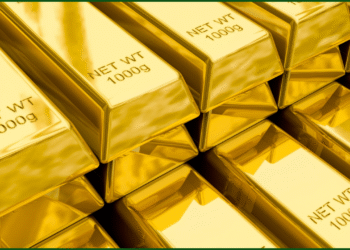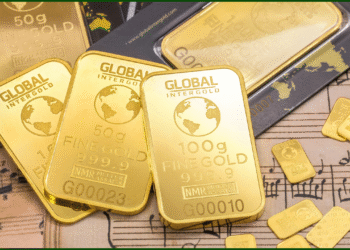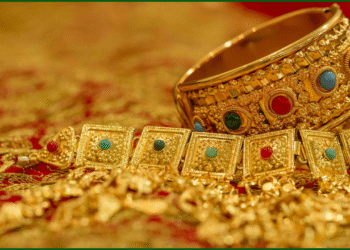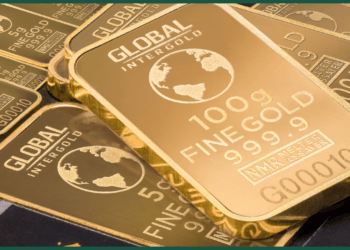Gold prices in Pakistan have surged to unprecedented levels, with the cost of 24-karat gold per tola reaching PKR 245,000 on Saturday, up PKR 15,000 from just a week ago. Jewelers and economic analysts attribute the dramatic spike to escalating global trade tensions and a resultant wave of inflation that has shaken markets worldwide.
The ongoing trade war, primarily between economic giants like the United States, China, and the European Union, has disrupted supply chains and driven up the prices of essential commodities. As currencies weaken and investor confidence wavers, gold—long seen as a safe-haven asset—has become the go-to hedge against economic uncertainty. In Pakistan, where inflation is already a pressing concern, the ripple effects are being felt acutely.
“People are rushing to buy gold because they don’t trust the rupee anymore,” said Hassan Raza, a gold trader in Karachi’s bustling Saddar market. “With import costs rising and the trade war showing no signs of cooling down, everyone wants something solid to hold onto.”
The State Bank of Pakistan reported that the annual inflation rate climbed to 18.5% in February, fueled by soaring energy prices and a depreciating rupee, which hit PKR 315 against the US dollar this week. The global trade war has exacerbated the situation, with tariffs and sanctions causing shortages of key goods, further pushing up prices.
Analysts warn that the gold rush may signal deeper economic trouble ahead. “This isn’t just about gold; it’s about a loss of faith in the global system,” said Dr. Ayesha Khan, an economist at Lahore University of Management Sciences. “Pakistan’s economy is heavily reliant on imports, and with trade barriers going up, we’re seeing a perfect storm of inflation and panic buying.”
The price surge has also impacted the jewelry industry, a cultural cornerstone in Pakistan, especially with the wedding season approaching. “Brides are settling for lighter designs or even gold-plated jewelry because pure gold is out of reach for many families now,” said Sana Mirza, a jeweler in Islamabad.
Meanwhile, the government has yet to announce concrete measures to stabilize the market. Finance Minister Ali Haider called for calm in a press briefing yesterday, stating, “We are monitoring the situation closely and working with international partners to mitigate the fallout.” Critics, however, argue that more decisive action is needed to curb inflation and restore confidence in the economy.
On the streets, ordinary Pakistanis are feeling the pinch. “I sold my gold earrings last year to pay for my son’s school fees, thinking prices would drop,” said Rubina Bibi, a housewife in Rawalpindi. “Now I can’t even dream of buying them back.”
As the trade war rages on and global uncertainty deepens, gold prices in Pakistan show no signs of slowing down, leaving citizens and policymakers grappling with an increasingly volatile economic landscape.


















































